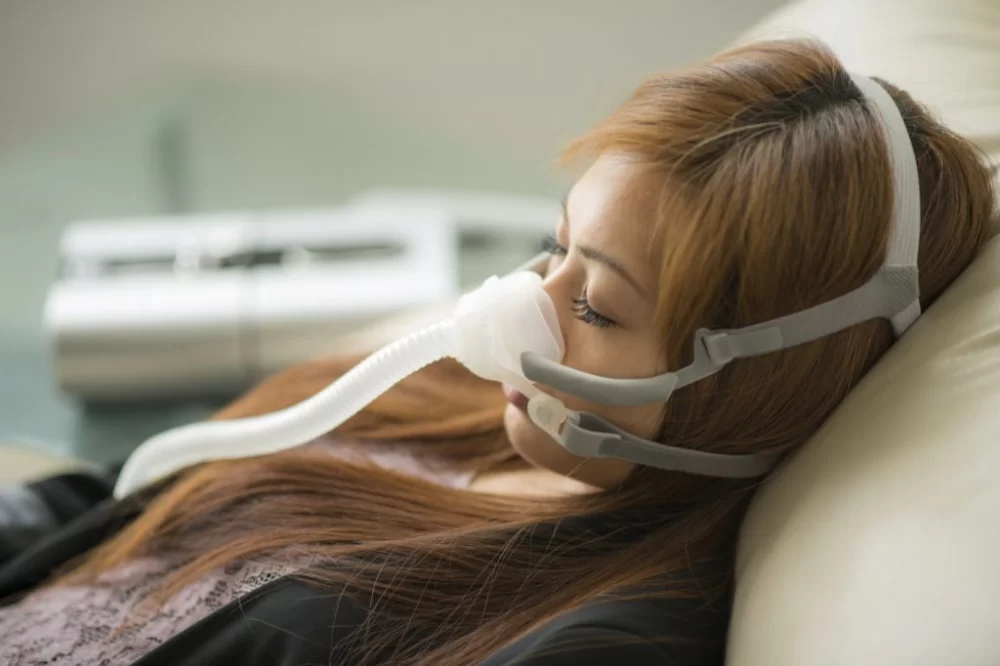
Safe and Effective Sleep Apnea Treatment for People with Liver Disease
- Understanding the Connection Between Sleep Apnea and Liver Disease
- Challenges of Treating Sleep Apnea in Liver Patients
- Best Treatment Options for Sleep Apnea in People with Liver Disease
- Lifestyle Changes for Better Sleep and Liver Health
- Choosing the Right Medical Support for Sleep Apnea and Liver Disease
1. Understanding the Connection Between Sleep Apnea and Liver Disease
Sleep apnea and liver disease are closely linked, with many patients experiencing both conditions simultaneously. Obstructive sleep apnea (OSA) causes repeated pauses in breathing during sleep, leading to reduced oxygen levels. This can worsen liver conditions such as non-alcoholic fatty liver disease (NAFLD) and cirrhosis by increasing inflammation and oxidative stress.
How Sleep Apnea Impacts Liver Function
Studies have shown that sleep apnea contributes to liver disease progression by promoting hypoxia (low oxygen levels), which damages liver cells. Patients with untreated OSA often exhibit higher levels of liver enzymes, indicating liver stress.
Recognizing the Symptoms
People with both sleep apnea and liver disease may experience symptoms such as excessive daytime sleepiness, loud snoring, morning headaches, and difficulty concentrating. Liver-related symptoms, such as jaundice and abdominal swelling, may worsen due to poor sleep quality.
2. Challenges of Treating Sleep Apnea in Liver Patients
Managing sleep apnea in individuals with liver disease can be complex due to potential treatment risks and medication interactions. Some common challenges include:
Increased Sensitivity to Medications
Liver disease affects how the body metabolizes medications, making it crucial to carefully select sleep aids and treatments that won’t overload the liver.
Fluid Retention and Airway Obstruction
People with liver disease, especially those with cirrhosis, may experience fluid retention that worsens airway blockage, making sleep apnea more severe.
Complications from CPAP Therapy
While CPAP (Continuous Positive Airway Pressure) is the standard treatment for sleep apnea, some liver patients may struggle with its use due to nasal congestion, discomfort, or increased pressure affecting their respiratory system.
3. Best Treatment Options for Sleep Apnea in People with Liver Disease
Effective sleep apnea treatment for liver patients requires a personalized approach. Here are the safest and most effective options:
Adaptive CPAP Therapy
Patients who have difficulty tolerating standard CPAP may benefit from adaptive servo-ventilation (ASV), which adjusts pressure levels dynamically to improve comfort and breathing stability.
Oral Appliance Therapy
For those who cannot use CPAP, custom-fitted oral appliances help keep the airway open by repositioning the jaw. This is a viable alternative with fewer side effects.
Positional Therapy
Since sleep apnea often worsens when sleeping on the back, positional therapy—such as specialized pillows or wearable devices—encourages side sleeping to reduce airway collapse.
4. Lifestyle Changes for Better Sleep and Liver Health
Alongside medical treatments, lifestyle modifications can significantly improve both sleep apnea and liver disease outcomes.
Weight Management
Obesity is a major risk factor for both conditions. A balanced diet rich in lean proteins, vegetables, and healthy fats can promote weight loss and liver recovery while reducing sleep apnea severity.
Avoiding Alcohol and Sedatives
Alcohol and sedative medications relax the throat muscles, increasing the likelihood of airway obstruction. Avoiding these substances can improve sleep apnea symptoms.
Practicing Good Sleep Hygiene
Maintaining a consistent sleep schedule, creating a dark and quiet sleep environment, and avoiding caffeine before bed can enhance sleep quality.
5. Choosing the Right Medical Support for Sleep Apnea and Liver Disease
Given the complexity of managing both conditions, it’s essential to consult specialists who understand the interplay between sleep apnea and liver disease.
Seeking a Sleep Specialist
A sleep medicine doctor can conduct sleep studies and recommend personalized treatment options based on the severity of the apnea and the patient’s liver health.
Coordinating with a Hepatologist
A hepatologist (liver specialist) can assess how sleep apnea treatments affect liver function and adjust medical plans accordingly.
By addressing both sleep apnea and liver disease with the right treatments and lifestyle changes, patients can achieve better sleep, improved liver health, and an overall higher quality of life.







 Buena Park Smile Dental Group4.0 (37 review)
Buena Park Smile Dental Group4.0 (37 review) Jared B. Williams D.D.S.4.0 (18 review)
Jared B. Williams D.D.S.4.0 (18 review) Thornwood Family Dental - South Elgin4.0 (198 review)
Thornwood Family Dental - South Elgin4.0 (198 review) Glamorous Smile Dental Spa5.0 (17 review)
Glamorous Smile Dental Spa5.0 (17 review) Midwestern University Dental Institute3.0 (101 review)
Midwestern University Dental Institute3.0 (101 review) Drs. Trava, Oh, Petix, Shon & Yang4.0 (21 review)
Drs. Trava, Oh, Petix, Shon & Yang4.0 (21 review) The Importance of Oral Health Education During Pregnancy for a Healthy Pregnancy
The Importance of Oral Health Education During Pregnancy for a Healthy Pregnancy Best Tips for Brushing Your Teeth Properly for Healthy Gums: Essential Techniques for Oral Health
Best Tips for Brushing Your Teeth Properly for Healthy Gums: Essential Techniques for Oral Health Why Skipping Dental Checkups Can Lead to Bigger Oral Health Problems
Why Skipping Dental Checkups Can Lead to Bigger Oral Health Problems Advantages of Porcelain Dental Restorations
Advantages of Porcelain Dental Restorations How Can Diabetes Cause Tooth and Gum Problems? Preventing and Managing Oral Health Issues
How Can Diabetes Cause Tooth and Gum Problems? Preventing and Managing Oral Health Issues Healthy Habits for Promoting Good Oral Health and Hygiene: Tips for a Healthy Smile
Healthy Habits for Promoting Good Oral Health and Hygiene: Tips for a Healthy Smile